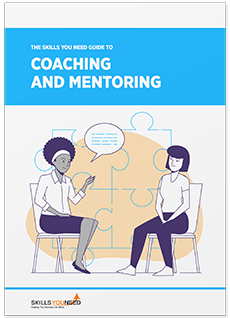The Teacher's Toolbox:
Essential Skills Every Educator Should Master
See also: Motivation Skills for Teachers
Are you a teacher? If you are, well done - it’s an incredibly noble calling and profession to be in. You are shaping the very minds of the future generation of workers, leaders, researchers, politicians, and other important positions in society. The positive impact teachers have on students and society can’t be said enough. Teachers are so needed in this world, and they are definitely worth more than what they are paid. So, if you’ve chosen this career, congratulations. You obviously care about education and shaping the minds of tomorrow.
But teachers, like other professions, need to develop and hone a range of different skills, whether that’s learning through formal education or experience in classroom settings. In this helpful article, we’ll explore what needs to be in the teacher’s toolbox, and you’ll learn what essential skills every educator should master. So, read on to discover more about this valuable topic.

Good Communication
A great teacher is an effective communicator in both written and verbal communication. You need to be able to write well to demonstrate this skill to your students, as well as use it in communicating with the parents and your colleagues. This is especially pertinent for English or creative writing teachers.
In addition to your writing skills, you need to be able to speak clearly, fluently, and at a pitch and volume to convey ideas to young minds. If you’re too quiet and mumble, or get flustered in delivering your words, the students will tune out and start to daydream or lose their focus on the class.
Active Listening
You also need to be able to practice actively listening to the students in your class when they share their work, answer a question, or otherwise participate in the class. Active listening means that you listen closely to a student, try to understand what they’re saying, and clarify their response. You can then respond and reflect on what’s being said and retain the information for later. This keeps both students and you actively engaged in the conversation.
You can develop this skill in your interactions with fellow teachers, administrative staff, and students' parents. As a teacher, practicing this skill will be invaluable in a range of settings.
Patience
Patience is a skill, not a personality trait. It’s a skill, like any other, that you can develop and strengthen with mindfulness and practice. It is also essential for teachers to develop, especially those who teach younger years.
Kids can be frustrating and test your patience. They can misbehave, lose attention and focus, struggle to comprehend the curriculum, and even become outright defiant. As a teacher, you can’t afford to lose your cool in class, or you’ll lose their respect and trust. Developing patience is key to being an effective teacher.
If you find yourself impatient, take a deep breath, count to ten, and consider a calm response to the situation.

Critical Thinking
Critical thinking is a skill that requires you to be able to analyze information and facts and come to a conclusion about a topic. This is a skill that is vital to teachers as you need to instill this in your students. You can practice critical thinking by being self-aware, but also by approaching a problem or puzzle with an open mind and considering all options. You might lead a discussion in class to analyze a text or think with curiosity about a scientific hypothesis.
Organization
Teachers need to be organized and develop these skills to become successful in this career. In a regular week, you need to arrange lesson plans, mark students' work, write reports, and perform various other tasks. If you’re disorganized, you might struggle to keep up with the demands of the role, and this may reflect in the classroom. As a teacher, you need to role model positive behavior for your students, and this means being organized and efficient in your role.
Leadership Skills
This may seem like a skill a teacher may not need, but that’s actually not true. You may need to practice leadership skills both inside and outside the classroom. To demonstrate strong leadership skills, you might accept additional duties offered by the school, such as coaching the sports team or directing a student interest club like chess, debating, or drama. Teachers with strong leadership abilities may be more likely to advance their careers to senior roles like principal or coordinator.
To develop your budding leadership skills, you could volunteer to take on additional responsibilities that are not within the scope of your regular work. You can develop this skill and build your ability by occasionally stepping out of your comfort zone.
Teamwork Skills
This may seem like a skill a teacher doesn’t need, especially as it is usually just you in the classroom with the students leading each lesson. However, you will always have to interact with others in your role as an educator. You may work on a project with other teachers, have to solve an issue with one of your colleagues, or work with a parent to address any difficulties with a particular student.
Developing teamwork skills will mean learning to collaborate, compromise, negotiate, and influence, all of which are valuable professional abilities. Not only is this a skill you need to know for yourself, but it’s one you will have to constantly teach to students. You can teach your students how to work effectively in a team and have respect for each other, which is a valuable skill for the next generation to learn.
A Teaching Skills Summary
This helpful article has shared the essential skills every educator should master to progress in their careers and excel in the classroom. Whether you choose to undertake a doctorate in k-12 leadership or decide to pursue different professional development opportunities, developing the skills mentioned above will take you far in your role as an educator. Practice makes perfect so the best way to develop these skills is to constantly be working on them: only then can you take your teaching to the next level and unlock future opportunities for leadership and career growth.
About the Author
Caitlyn Bell is an arts student whose experiences in life make her tougher than anyone else. She can lend you expert tips on diverse topics ranging from relationships to fashion, making money, health, and careers.

